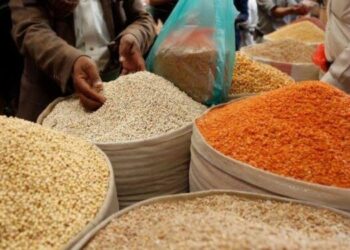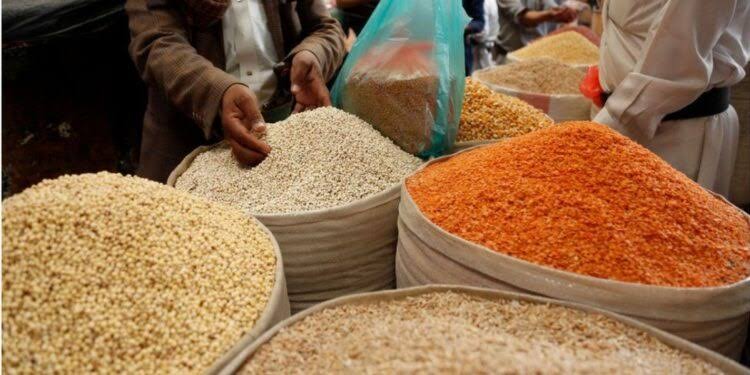The instructions for suspending customs duties and taxes on imported food items will go into effect next week, the federal government said this on Tuesday.
In July, the Federal Government granted a 150-day duty-free window to allow the importation of maize, husked brown rice, and wheat as part of initiatives to tackle growing food prices across the country.
The initiative was founded on the implementation of the Presidential Accelerated and Stabilisation Advancement Plan. Speaking at a meeting of chiefs of security agencies in Abuja on Tuesday, the Comptroller-General of Customs, Bashir Adeniyi, said the implementation of the policy would commence once the guidelines are complete.
He added that the delay in policy implementation was necessary to ensure that all stakeholders, including farmers, had their interests considered.
The Customs boss advised Nigerians to be patient, saying that some imported commodities currently in the country will be cleared tariff and tax free.

Adeniyi stated, “There is a need to strike a compromise between the long-term interests of Nigerian farmers and parties involved in the production of these commodities and the short-term interest of food inflation.
“I urge Nigerians to exercise some patience, believing that some of the items that have already arrived at our shores will be cleared without the imposition of Customs duty and taxes.
“So the guidelines are being worked out at the Ministry of Finance and I can assure you that within the next week, these guidelines will be ready,” Adeneyi said.
He expressed hope that the suspension of duty and taxes on imported food items over a period of time would help lower food prices.
He stated that the service was dedicated to implementing the government’s policies.
“We believe that doing this will assist to down food prices in the market. Nigerian Customs is committed to implementing the government’s budgetary policy.
“What does this type of intervention mean for local markets? Because we want to address the interests of all stakeholders. Nigerian farmers are also cultivating the crops that will benefit from the tariff waivers and discounts.
Adeniyi remarked that since the protests were centred on alleviating hunger, the administration has been working to abolish hunger. He elaborated: “The ongoing protest has been based on many themes and one of them is ending hunger.”
I’d like to inform Nigerians that there has been a lot of work done to address the difficulties surrounding this circumstance through a combination of government budgetary policies and a variety of strategic interventions from ministries, departments, and agencies.
“One of the things that comes to mind is the intervention, which involved the distribution of strategic food products from the national grain stockpiles around a month ago.
This was made available to all states of the federation. We should also realise that many of the foods consumed in Nigeria are imported. A large portion of the components are imported, and this is not done on the shelf.
“It takes some time until they are finished. So, one of the things that the President has done is to mitigate the effects of cost inflation by temporarily suspending customs duties and taxes on imported food items.”
In Essence
The temporary suspension of customs duties and taxes is intended to provide immediate relief from food inflation, making essential food items more affordable for consumers. This can help alleviate the financial burden on households facing rising food costs.
While the policy aims to reduce food prices, it could potentially affect local farmers who rely on the domestic market for their produce. Striking a balance between supporting local agriculture and addressing food inflation is crucial to ensure that the policy does not inadvertently harm the agricultural sector.
By lowering the cost of imported food items, the government hopes to stabilize prices and reduce inflationary pressures. However, the impact on local production and the broader economy will need to be carefully monitored to avoid long-term negative effe

















